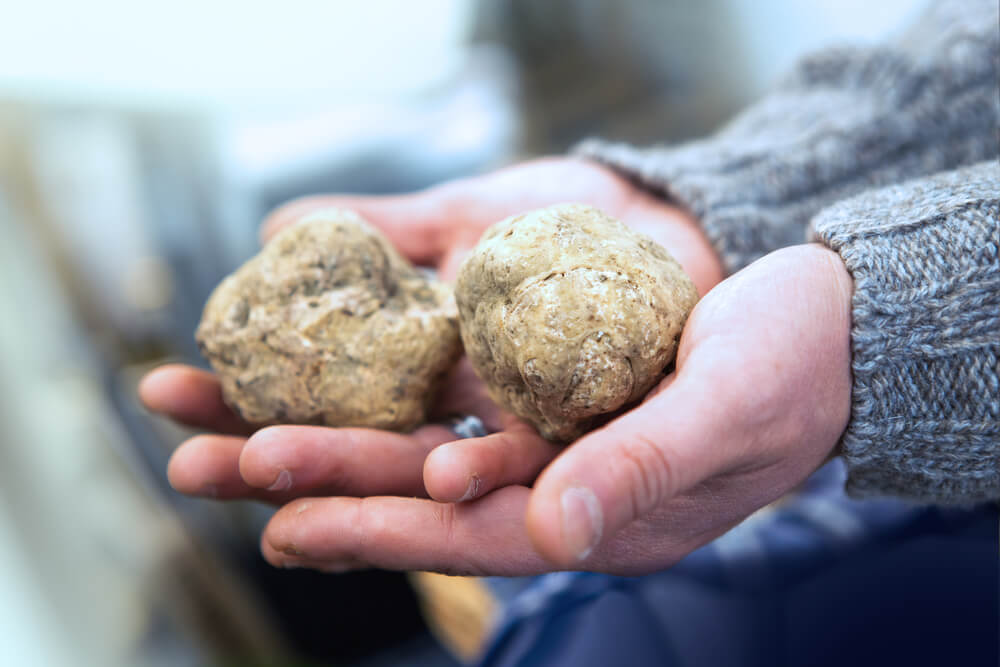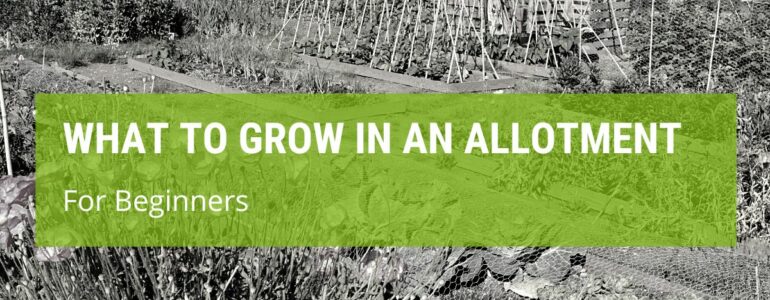Allotments are truly fabulous inventions, especially if you don’t have the space to grow things at home. If you are new to allotmenteering, it might be wise to look up what to grow in an allotment for beginners – and that’s where we come in!
What To Grow In An Allotment For Beginners?

If you are new to allotment gardening, you will want to know what are the best things you can plant for the best results.
Some plants are easier to grow than others, and some take a very long time to get established (asparagus, we’re looking at you!)
We have some great ideas for things that you can grow as a first time allotmenteer, so that you can really get into gardening:
- Potatoes. These are easy to grow, give great results and take very little effort to get them right.
- Peas. Pea plants are fantastically easy to grow and very rewarding – you can get some great results from growing pea plants.
- Radishes. These are simple and easy to grow, and they will produce delicious results with very little input from you.
- Salad. Growing salad leaves is a fantastic introduction into gardening; they are very quick to sprout, and you can sow them for months on end.
- Onions. As long as you plant onion sets rather than seeds, these are another easy and low maintenance crop that can provide you with great results.
- Beetroot. When they aren’t surrounded with weeds, these will grow quickly and will pretty much look after themselves.
- Tomatoes. Whether you like cherry toms or a big beefsteak, tomatoes are a great crop to plant on your new allotment.
The best advice I can give you is to just get out there, get your hands in the soil, and see what works for you. Trust me, you’ll love it!
How Do You Start An Allotment For Beginners
There are a few things that you need to consider, if you are taking on an allotment for the first time.
Established plants must be considered – you may have inherited fruit bushes or trees on your plot. Do you want to keep them or dig them up?
You will need to get in touch with the committee to discover what particular rules there are – some allotments require you to mow your own borders, for example.
Work out what you want to plant, and get started buying the seeds you will need to grow these plants in time for the growing season.
Next, get your plot ready – chances are weeds and grasses and other plants will already have become established, especially if the plot has been abandoned for a while.
You will probably have to weed the plot thoroughly to remove any plants that might hinder your own plants, and remove any large stones.
It’s a good idea to fertilise the soil, either using well-rotted manure or green mulch, to ensure that there are enough nutrients for your growing plants.
Finally, make friends! Allotmenteering is a good way to meet fellow gardeners, and you may find that you can swap seeds and produce as well as having a nice chat.
Here is a great video, helping you through getting your first allotment plot:
What Should You Not Do In An Allotment?
So, you have an allotment. You already know you can’t sunbathe naked there, or have choking bonfires – but is there anything else you should be aware of?
- Don’t allow your plot to get overgrown. This can spread weeds to your neighbours’ plots, and they will NOT thank you for this!
- If you have a dog, keep it under control. No one wants to be weeding their peas and tread in something much worse than a pea (see what I did there?)
- Avoid hard metal music. Because allotments are generally away from residential areas, you may think that you can indulge any musical taste you want. Try to be aware of other plotholders, and realise that not everyone likes Metallica.
There’s not much else you need to do or not do, but bear in mind you need to pay attention to the rules of your own allotment.
What Are The Disadvantages Of An Allotment?
As it turns out, there are very few disadvantages to an allotment. You may be dithering about getting one, but the plus sides are so huge.
A space to grow your fruits, veggies and flowers? Check! A place to meet like minded people and swap tips? Check! Somewhere you can grow fruits and veggies to feed your family? Check!
However, it wouldn’t be a fair discussion if we didn’t look at the possible down sides, so here they are, in no particular order.
- Cost. Although allotment rent is negligible, it is still an outgoing that you have to consider, especially in these times where we all have to tighten our belts.
- Time. Allotments can occupy a fair bit of your time, and although this is generally pleasurably spent it is worth trying to factor in whether you actually have time for it.
- Potential heart ache. We all have years where the weather, slugs, rabbits and blight are against us. There’s nothing worse than seeing your beloved seedlings decimated!
- Travel time. You may live a bit of a distance form your allotment, in which case you will have to balance out the joy versus the fuel expenditure to get there.
- Diseases. You may be a conscientious gardener, but blight can strike at any time and is not necessarily because of anything you have done.
- Pests. Your allotment will likely be a distance from your house, and as such you cannot go on “slug patrol” late at night – your plants will have to take their chances.
- Water. Some allotments don’t have a water supply, meaning that you’ll have to bring your own or install a water butt.
If you are suddenly feeling discouraged about being a plotholder, have a skim through this short article.
Final Words
They say that when you know better, you do better – now you hopefully have a much better idea of how to make your allotment both beautiful and productive!
It doesn’t matter if you are a beginner; allotment gardening is accessible for everyone. Another great advantage is that you are bound to find an experienced plot holder who will be willing to share their wisdom with you -whether you want them to or not!







